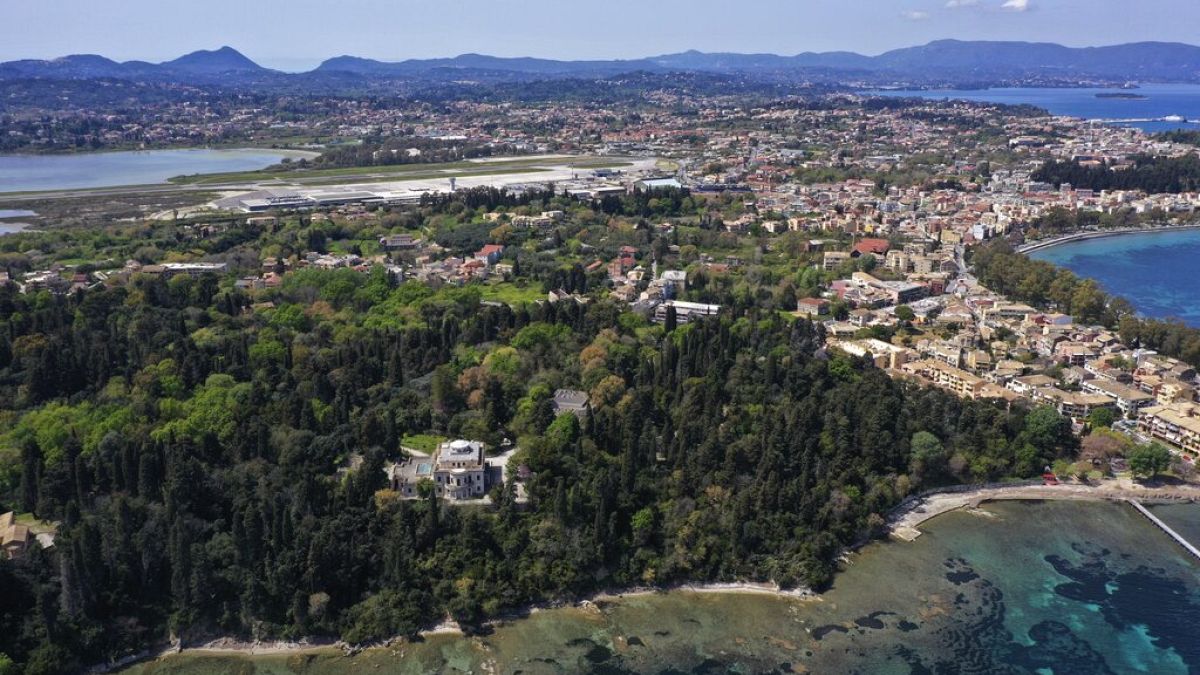

Across Europe, the summer of 2025 unfolds under the weight of a severe heatwave, leaving its mark on communities, the environment, and economies. The intense weather conditions have spawned a range of responses, from innovative cooling solutions to relocations and new policy discussions. As temperatures climb, impacts are felt from the sunlit islands of Greece to the serene peaks of the Himalayas, prompting reflection on sustainable practices and the resilience of local populations.
On the sunlit island of Corfu, efforts are being made to reshape tourism. Faced with the ongoing challenge of overtourism, island officials are embarking on a strategic shift to attract wealthier visitors. By investing in luxury accommodations and services aimed at tourists with deeper pockets, Corfu hopes to enhance its tourism sector while minimizing overcrowding and its associated impacts. This approach is envisioned as a way to sustain the island amid rising visitor numbers and the environmental pressures they introduce.
Meanwhile, in the heart of Europe, major cities like Paris experience firsthand the immediate effects of the heatwave. Seeking relief from the relentless heat, locals and tourists alike gather along canal banks and enjoy cooling mists provided throughout the city. These ubiquitous measures serve as testimony to the resilience and adaptive spirit found in urban settings, where innovation meets the necessity brought on by climatic challenges.
The severe climatic conditions, however, extend beyond temporary discomforts, manifesting in more dramatic life changes in regions such as the Himalayas. For the inhabitants of the ancient village of Samjung, the realities of climate change have necessitated relocation. As traditional water sources dried up due to changing weather patterns, and flooding replaced predictable snowfalls, the community made the difficult decision to move, leaving behind generations of life in the mountains. This poignant relocation underscores the profound shifts occurring at the intersection of climate change and traditional ways of life.
Throughout Europe, wildfires rage, with Turkey emerging as a hotspot. Over 50,000 individuals have had to evacuate parts of Turkey as wildfires engulf forested areas, homes, and businesses, urged on by tinder-dry conditions. The situation reflects broader patterns of extreme weather events across the continent, demanding rapid response and adaptation from authorities. While they work tirelessly to contain these disasters, the personal impacts and environmental losses resonate deeply, calling attention to the urgent need for sustainable and mitigating strategies.
Public health alerts accompany these environmental challenges, underscoring the potential rise in heat-related illnesses and fatalities. As a severe warning, medical experts predict thousands could face health risks if conditions persist unchecked. The heatwave stands as an underscored reminder of Europe’s evolving climate reality, pressing the need for public health preparedness and community awareness.
In parallel, discussions about climate policy advance amidst this backdrop of heat. The European Union is engaging in debates over the potential incorporation of carbon credits from developing nations within its climate strategy. This consideration aligns with the EU’s larger goal of achieving significant emissions reductions by 2040 and working towards a net zero future by mid-century. While the idea generates contention, especially among environmental groups, it opens avenues for dialogue on innovative approaches to global sustainability and emissions accountability.
As Europe faces a range of repercussions from this summer’s heatwave, a mosaic of responses unfolds from different corners, representing adaptive practices, policies, and conversations. These efforts underline the interconnected nature of climate challenges and the collective impetus to address them. Whether through empowering economies, supporting cultural adaptations, or advancing policy dialogues, the journey towards a resilient future continues.
Source: {link}
